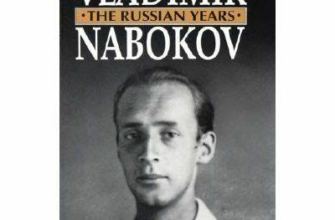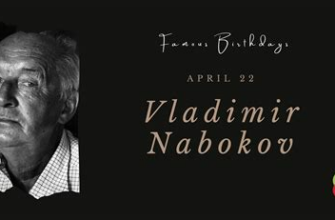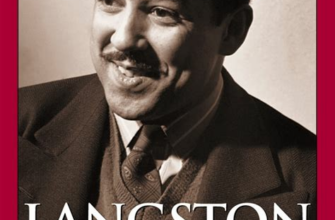Immerse yourself in the captivating world of one of the most influential figures in Russian literature and philosophy. Through his profound insights and breathtaking storytelling, Leo Tolstoy ignited a literary revolution that continues to resonate with readers across the globe.
Discover the enigmatic essence that defined Tolstoy's life and work, as we delve into his extraordinary journey from a privileged aristocrat to a leading voice of social reform and spiritual enlightenment. Throughout his writings, Tolstoy masterfully captured the complexity of human nature and the timeless themes that shape our existence.
From his early works, brimming with youthful exuberance and romantic fervor, to his later introspective novels that delved deep into the human psyche, Tolstoy's literary brilliance remains unparalleled. His intricate narratives, interwoven with moral dilemmas and profound philosophical musings, elevate his stories into thought-provoking and emotionally charged masterpieces.
As you embark on this voyage through Tolstoy's literary universe, prepare to be mesmerized by his unique ability to expose the intricacies of the human condition. Uncover the threads of compassion, love, and war that intertwine throughout his novels, gaining rare insights into the timeless lessons that continue to shape and transform our lives.
Leo Tolstoy: The Early Years

In this section, we delve into the formative years of the celebrated writer, Leo Tolstoy, examining the early experiences and influences that shaped his remarkable trajectory as a literary figure. We explore his childhood, upbringing, and the pivotal moments that ignited his passion for storytelling, leaving an indelible mark on his future works.
An Unconventional Upbringing:
Leo Tolstoy's early years were defined by an unconventional upbringing, marked by a blend of aristocratic privilege and cultural diversity. Born into a noble family in Russia, Tolstoy's childhood was characterized by a vast estate, where he was exposed to a wide range of experiences and traditions. These early encounters with various social classes, languages, and customs fostered a deep curiosity and empathy within him, which would later become hallmarks of his literary genius.
The Call of the Written Word:
During his early years, Tolstoy felt a stirring within him, a call to explore the realm of literature. Immersed in the rich oral storytelling traditions of his culture, he developed a profound appreciation for narrative and the power of words. This fascination sparked his desire to craft stories of his own, propelling him towards a future filled with literary brilliance.
Educational Pursuits and Intellectual Awakening:
Tolstoy's early education was guided by private tutors, who nurtured his intellectual curiosity and encouraged him to pursue a wide array of subjects. He voraciously consumed works of literature, philosophy, and history, seeking to broaden his understanding of the world. This insatiable thirst for knowledge fueled his quest for enlightenment and served as a catalyst for his literary development.
From Soldier to Author:
At the age of seventeen, Tolstoy embarked on a military career, which exposed him to the harsh realities of war and human suffering. These experiences left an indelible impact on him, prompting a shift in his perspective and values. Seeking solace and an outlet for his reflections, Tolstoy turned to writing, channeling his observations and emotions into stories that would resonate with audiences for generations to come.
As we unfold the early chapters of Tolstoy's life, we gain a deeper appreciation for the unique blend of influences and experiences that shaped his literary journey. From his unconventional upbringing to his intellectual awakening, these formative years laid the foundation for Tolstoy's profound contributions to the world of literature.
Discovering Tolstoy's Childhood and Education
Unveiling the formative years and educational journey of one of history's most celebrated authors allows us to gain a deeper understanding of the influences that shaped Leo Tolstoy's remarkable literary talent.
Exploring Tolstoy's early years, we delve into the experiences and surroundings that played a pivotal role in his development as a wordsmith. From his humble beginnings in Yasnaya Polyana, Russia, to his family's aristocratic roots, unraveling Tolstoy's childhood offers insights into the social and cultural milieu that propelled his imagination.
As we trace Tolstoy's educational path, a mosaic of influences emerges. From his initial home teachings by private tutors, which fostered his love for literature and foreign languages, to his later formal education in Kazan, the author's thirst for knowledge was unquenchable. We discover how Tolstoy's exposure to renowned literary works, philosophical ideas, and the liberal arts nurtured his intellectual curiosity and became the foundation for his literary brilliance.
Moreover, understanding Tolstoy's educational journey sheds light on his passion for social justice and inequality, themes that echo throughout his renowned works. From witnessing the harsh realities of serfdom during his adolescence to the impact of his military service in the Caucasus, Tolstoy's education fuelled his desire to challenge societal norms and advocate for the downtrodden.
By delving into Tolstoy's childhood and education, we gain a comprehensive understanding of the formative influences that shaped his unique perspective, his unparalleled storytelling prowess, and his enduring impact on the world of literature.
Tolstoy's Journey as a Writer

Discovering the evolution of Tolstoy's literary prowess unfolds a remarkable story of growth and transformation. Immersed in the realm of words, Tolstoy embarked on a profound journey of self-expression and exploration, weaving together narratives that resonated deeply with readers across time and cultures.
Diving into Tolstoy's body of work reveals a multifaceted understanding of human nature, as he delves into the complexities of the human experience. With his captivating prose and insightful observations, Tolstoy skillfully crafts characters that come alive on the page, capturing the intricacies of their emotions and motivations.
Tolstoy's writing transcends mere storytelling; it serves as a vehicle for contemplation and introspection. Through his narratives, he prompts readers to reflect upon existential questions, challenging societal norms and shedding light on deeper truths. With passionate precision, Tolstoy balances themes of love and loss, morality and spirituality, presenting readers with a tapestry of the human condition.
Over the course of his writing career, Tolstoy's style evolved, as he experimented with various techniques and narrative structures. This evolution is emblematic of his tireless pursuit of artistic excellence, constantly pushing the boundaries of his own creativity. From his early works, marked by youthful exuberance and idealism, to his later works, marked by a more somber introspection, Tolstoy's journey as a writer is one of perpetual growth and intellectual curiosity.
Tolstoy's literary legacy continues to resonate today, captivating generations with its timeless themes and profound insights into the human psyche. His ability to blend intellectual depth with emotional resonance remains unparalleled, leaving an indelible mark on the literary landscape.
Exploring the Themes and Writing Style in the Literary Masterpieces of Tolstoy
Delving into Tolstoy's works allows for an immersive experience into deeply profound concepts that transcend time and captivate readers. From examining the very essence of humanity to shedding light on the complexities of social structures, Tolstoy's themes encompass a wide range of universal truths.
The writing style employed by Tolstoy further enhances the potency of these themes, as he masterfully combines richly descriptive prose with thought-provoking introspection. With his meticulous attention to detail and astute observations of human nature, Tolstoy effortlessly instills a sense of realism and authenticity in his characters.
- Themes of Love and Passion: Tolstoy's works often explore the fundamental human experiences of love and passion. He presents these themes in a nuanced manner, showcasing both the joys and the complexities that come with them.
- Social Criticism and Inequality: Tolstoy delves into the societal structures of his time, providing insightful commentary on the injustices and inequalities that existed. Through his characters, he sheds light on the struggles faced by the lower classes and challenges the existing social norms.
- Morality and Ethics: Tolstoy wrestles with questions of morality and ethics in his works, posing philosophical dilemmas and inviting readers to contemplate the nature of right and wrong. He often presents conflicting perspectives, leaving the reader to grapple with these timeless questions.
Through his themes and writing style, Tolstoy masterfully captures the essence of the human condition, inviting readers to explore profound aspects of life, love, and morality. His works continue to inspire and resonate with audiences today, making him one of the most celebrated authors in literary history.
Tolstoy's Inspirations and Influences

In this section, we will delve into the various sources of inspiration and influences that shaped the literary genius of the renowned author, Leo Tolstoy. Through a thorough exploration of his works, we will unravel the intricate web of ideas and experiences that propelled Tolstoy's imagination, offering unique insights into the mind of this literary luminary.
1. Ancestral Heritage and Cultural Roots
- The rich tapestry of Tolstoy's ancestral heritage, intertwined with the historical and cultural context of Russia, forms the foundation of his literary creations.
- The traditions, customs, and societal norms prevalent during Tolstoy's time exerted a significant influence on his portrayal of characters and their moral dilemmas.
- Exploring themes of loyalty, honor, and duty, Tolstoy's works often reflect his deep connection to his roots and the influence of his cultural heritage.
2. Philosophical and Spiritual Quests
- Tolstoy's relentless search for meaning and purpose in life manifested in his exploration of various philosophical and spiritual ideas.
- From the profound moral teachings of Christianity to the philosophical ideologies of thinkers like Rousseau and Schopenhauer, Tolstoy's works echo his ongoing quest for truth and enlightenment.
- The fusion of religious and philosophical thought in Tolstoy's writings adds depth to his characters and provides a lens through which readers can ponder life's existential questions.
3. Personal Journeys and Life Experiences
- Tolstoy's own experiences, including his military service, travels, and personal relationships, played a pivotal role in shaping his literary works.
- His encounters with the harsh realities of war and the disparities of social class informed his depiction of characters facing moral dilemmas and navigating complex societal structures.
- By drawing from his own triumphs and tribulations, Tolstoy crafted vivid narratives that resonated with readers, capturing the essence of human existence and the complexities of the human psyche.
In conclusion, Tolstoy's inspirations and influences were multi-faceted, drawing from his ancestral heritage, philosophical and spiritual quests, as well as personal journeys. Understanding these elements enriches our appreciation of his literary brilliance, providing a glimpse into the mind and soul of one of the most celebrated authors in history.
Uncovering the Influential Figures Shaping Tolstoy's Writing
Delving into the depths of Leo Tolstoy's literary masterpieces requires an understanding of the diverse array of figures who influenced his writing. From philosophical thinkers to fellow authors, these individuals contributed to Tolstoy's unique creative perspective and the timeless allure of his works. Exploring the profound impact of these literary and philosophical figures unveils the captivating origins of Tolstoy's thought-provoking narratives.
| Philosophical Figures | Literary Influences |
|---|---|
| 1. Friedrich Nietzsche | 1. William Shakespeare |
| 2. Immanuel Kant | 2. Fyodor Dostoevsky |
| 3. Henry David Thoreau | 3. Charles Dickens |
Among the philosophical figures that left an indelible mark on Tolstoy's writing, Friedrich Nietzsche's concept of the "Ubermensch" provided inspiration for his exploration of individualism and moral consciousness. Immanuel Kant's philosophy of duty and ethics also deeply influenced Tolstoy's characters, who often grappled with questions of morality and personal responsibility.
In addition to these philosophical influences, Tolstoy drew on the literary works of revered figures such as William Shakespeare, whose profound insights into human nature and complex storytelling techniques resonated with Tolstoy's artistic sensibilities. Fyodor Dostoevsky, renowned for his psychological realism, played a significant role in shaping Tolstoy's exploration of the human psyche and the complexities of human emotions.
Furthermore, the vivid storytelling and social commentary of Charles Dickens impacted Tolstoy's writing, inspiring him to incorporate themes of social inequality and injustice into his own narratives. Through the influence of these visionary literary figures, Tolstoy weaved together a rich tapestry of compelling characters and thought-provoking themes, leaving an enduring legacy in the world of literature.
Tolstoy's Impact on Russian Literature

In the realm of Russian literature, few names resonate as deeply and enduringly as Tolstoy's does. His contribution to the literary landscape of Russia is immeasurable, leaving an indelible mark on the trajectory of the nation's literary tradition.
Tolstoy's influence can be witnessed through the sheer magnitude and power of his written works. With an unwavering commitment to portraying authentic human experiences, Tolstoy breathed life into characters that still resonate with readers today. His narratives were awe-inspiring, capturing the complexities of the human condition with a keenness that defied conventional storytelling. Through a combination of vivid descriptions, intricate plots, and profound philosophical insights, Tolstoy's literature possessed an unmatched ability to transport readers into the depths of the Russian soul.
Furthermore, Tolstoy's impact on Russian literature extends beyond the realm of storytelling. He revolutionized the structure and style of Russian prose, forging new paths and challenging established conventions. His experimental approach to narrative techniques, such as utilizing stream-of-consciousness and shifting perspectives, expanded the possibilities of storytelling, inspiring future generations of Russian writers to explore innovative writing techniques.
Moreover, Tolstoy's literature was imbued with a profound sense of social consciousness and moral responsibility. Through his works, he grappled with and shed light on the pressing issues of his time, including social inequality, war, and the human search for meaning. Tolstoy's relentless pursuit of truth and justice reverberated across the pages of his novels, provoking readers to question their own beliefs and values, and igniting a collective desire for societal change.
Thus, Tolstoy's impact on Russian literature transcends mere authorship. He shaped the very essence of Russian literary tradition, leaving an indelible legacy that continues to inspire, challenge, and captivate readers and writers alike.
Examining the Enduring Impact and Contributions of Tolstoy to the Russian Literary Canon
In this section, we delve into the lasting legacy and significant contributions that Tolstoy has made to the rich tapestry of Russian literature. Throughout his illustrious career, Tolstoy has shaped and redefined the Russian literary landscape, leaving an indelible mark on future generations of writers.
One of Tolstoy's most striking contributions lies in his profound exploration of the human condition. Through his works, he masterfully examines the complexities of human nature, weaving together compelling narratives that delve into the depths of the human psyche. By skillfully portraying the hopes, dreams, passions, and flaws of his characters, Tolstoy captivates readers, prompting them to reflect on their own lives and the universal experiences that connect us all.
Another noteworthy aspect of Tolstoy's legacy is his unparalleled ability to depict the societal and political landscape of his time. In his writings, he offers a searing critique of the existing social order, shedding light on the glaring injustices and inequalities that permeate society. Through his exploration of themes such as class divisions, moral dilemmas, and the existential search for meaning, Tolstoy challenges readers to question established norms and envision a better world.
Furthermore, Tolstoy's meticulous attention to detail and vivid descriptions have become hallmarks of his literary style, garnering widespread acclaim and admiration. His ability to paint a rich and immersive world with words transports readers to 19th-century Russia, allowing them to fully immerse themselves in the lives and experiences of his characters. This unparalleled storytelling prowess continues to inspire and influence countless writers, cementing Tolstoy's place as a literary giant.
Moreover, Tolstoy's commitment to truth-telling and authenticity in his writings remains a central tenet of his contribution to Russian literature. By delving into moral quandaries and ethical dilemmas, he confronts readers with the complexities of life, presenting them with thought-provoking questions that defy easy answers. This unwavering commitment to truth and integrity has not only shaped his own works but has also set a powerful precedent for future Russian authors to aspire to.
In essence, Tolstoy's enduring legacy lies in his ability to transcend time and space, captivating minds and hearts across generations. By examining the human condition, critiquing social norms, masterfully evoking vivid imagery, and unwaveringly upholding the pursuit of truth, Tolstoy has indelibly shaped the Russian literary canon, solidifying his status as a titan of literature.
| Click here to explore more about Tolstoy's life: |
| Tolstoy: A Glimpse into the Extraordinary Life of an Iconic Author |
FAQ
What are some key aspects of Leo Tolstoy's life that influenced his writing?
Leo Tolstoy's life was heavily influenced by his experiences in the military, his marriage and family life, and his spiritual awakening. These aspects greatly shaped his writing style, themes, and characters in his novels.
What are some of Tolstoy's most famous works?
Leo Tolstoy is renowned for his epic novels, such as "War and Peace" and "Anna Karenina", which are considered masterpieces of Russian literature. He also wrote notable shorter works like "The Death of Ivan Ilyich" and "Childhood".
How did Tolstoy's beliefs and philosophies influence his writing?
Tolstoy's beliefs in nonviolence, simplicity, and the pursuit of moral living greatly influenced his literary works. He often explored these themes through his characters and depicted the struggles of individuals in adhering to these ideals in a complex and often flawed society.



